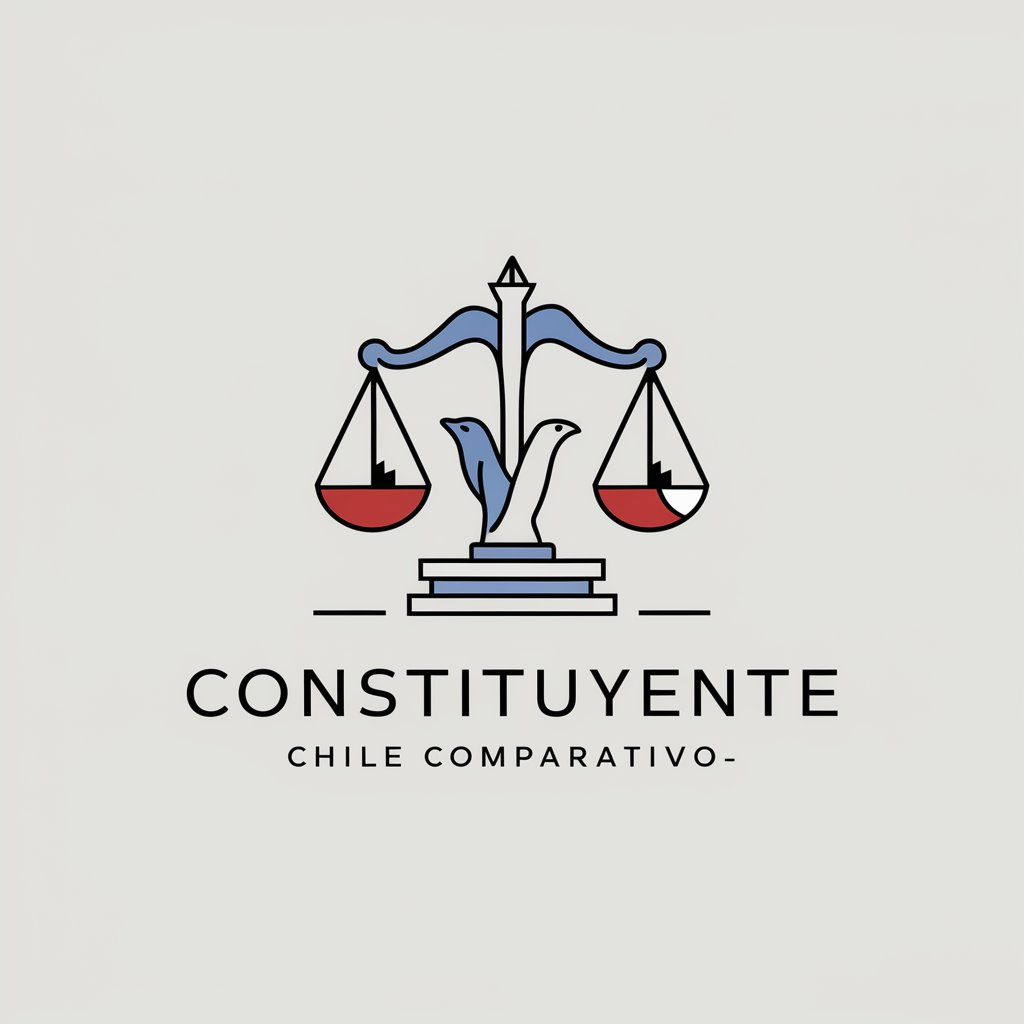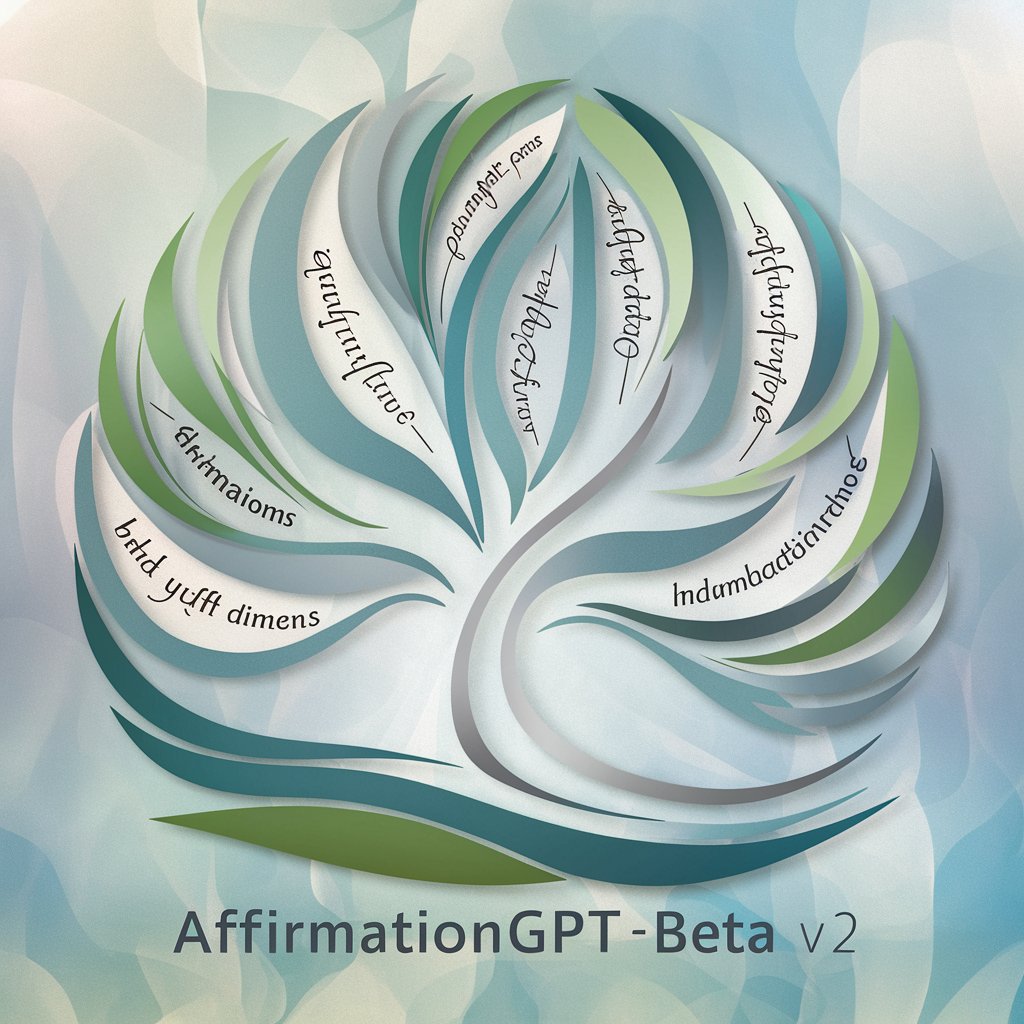Constituyente Chile - Comparative Constitutional Analysis

Welcome to Chile's constitutional comparison expert!
Unveiling Chile's Constitutional Pathways with AI
Compare the treatment of social rights in both constitutions by discussing...
Analyze how governmental structures differ between the current and proposed constitutions, with a focus on...
Describe the differences in civil protections outlined in both constitutions, particularly...
Explain how the proposed constitution addresses indigenous rights compared to the current one...
Get Embed Code
Introduction to Constituyente Chile
Constituyente Chile Comparativo is a specialized GPT designed to provide detailed comparisons between the current Chilean Constitution and a proposed new constitution. It is engineered to analyze and elucidate the differences and similarities between the two texts, focusing on how each document addresses key themes such as social rights, governmental structure, and civil protections. Through a comprehensive understanding of both constitutions, Constituyente Chile Comparativo leverages its extensive knowledge base to deliver precise comparative analysis. This GPT aims to remain objective and educational, facilitating an understanding of each constitution's implications for Chilean society. Examples of its application include analyzing the extent of fundamental rights guaranteed, the division of powers within the government, and the mechanisms for protecting civil liberties, providing users with clear insights into the structural and philosophical changes each constitution represents. Powered by ChatGPT-4o。

Main Functions of Constituyente Chile
Comparative Analysis
Example
Comparing the provisions related to environmental rights in the current constitution with those in the proposed draft.
Scenario
A user inquires about the differences in environmental protection commitments. Constituyente Chile would analyze and highlight how each constitution addresses environmental rights, including specific protections, the role of the state in environmental preservation, and the rights of citizens to a healthy environment.
Educational Resource
Example
Explaining the concept of 'Plurinational State' as introduced in the proposed constitution.
Scenario
An educator seeks to explain the concept of a 'Plurinational State' to students. Constituyente Chile provides a detailed explanation, including the implications for indigenous rights and how this concept differs from the unitary state model in the current constitution.
Legal Comparison
Example
Detailing changes in the separation of powers under the proposed constitution.
Scenario
A legal analyst is researching the restructuring of the legislative branch. Constituyente Chile offers a comparison of the existing legislative structure with the proposed changes, outlining how these alterations might affect legislative processes and checks and balances.
Ideal Users of Constituyente Chile Services
Academics and Researchers
This group benefits from Constituyente Chile's in-depth analysis for scholarly research, papers, and educational purposes. They can utilize the GPT to explore the nuances of constitutional law, comparative politics, and the implications of legal changes in Chile.
Legal Professionals
Lawyers, judges, and legal scholars can use Constituyente Chile to understand the potential impacts of the proposed constitution on existing laws and judicial precedents. The detailed comparisons provide a foundation for legal analysis, litigation strategies, and policy development.
Civic Organizations and Activists
These users can leverage Constituyente Chile to inform their advocacy and public education campaigns. By understanding the specifics of constitutional proposals, they can better articulate their positions, mobilize support, and engage in informed dialogue with policymakers and the public.

How to Use Constituyente Chile
Start Free Trial
Begin by accessing a complimentary trial at yeschat.ai, no registration or ChatGPT Plus subscription required.
Select Tool
Choose 'Constituyente Chile Comparativo' from the list of available tools to start analyzing the Chilean constitutions.
Input Query
Enter your specific question or topic related to the current and proposed Chilean Constitutions to get a comparative analysis.
Review Analysis
Examine the detailed comparison provided, including differences, similarities, and implications for each constitution's approach to key issues.
Utilize Insights
Apply the insights gained for academic research, legal analysis, policy development, or public education on constitutional matters in Chile.
Try other advanced and practical GPTs
Medi Assistant
Streamlining Medical History with AI

CI-GPT
Empower Your Strategy with AI-Driven Insights

AffirmationGPT_Beta_v1
Empower Your Mindset, Elevate Your Day

Lucas: ACT Companion
Empowering Minds with AI-Driven Therapy Insights

Readability and Accessibility Coach
Enhancing Text Clarity with AI

DevGPT
Empowering Development with AI-Powered Precision

Modular Star Crafter
Craft your universe with AI-powered design

Mandos Brief
Accelerating Cybersecurity Knowledge with AI

Energy Advisor.ai
Powering Up Homes with AI-driven Electrification Guidance

Cliche Mixer
Twist phrases with AI-powered wit

Fish Finder
Empower Your Fishing with AI

ペット育成ゲーム
Nurture and Battle with AI-Powered Pets

FAQs about Constituyente Chile
What is Constituyente Chile Comparativo?
Constituyente Chile Comparativo is an AI-powered tool designed to provide detailed comparative analyses between the current Chilean Constitution and the proposed draft, focusing on key topics like social rights, government structure, and civil protections.
How can I get the most accurate analysis?
For the most precise analysis, provide clear and specific queries about the topic or article you're interested in comparing within the constitutions. The tool is optimized for detailed inquiries.
Can Constituyente Chile assist with academic research?
Absolutely, Constituyente Chile is an invaluable resource for students, scholars, and legal experts engaged in academic research, offering deep insights into constitutional law and reforms in Chile.
Is prior knowledge of the Chilean Constitutions required?
No prior knowledge is needed. Constituyente Chile is designed to be accessible for users at all levels of familiarity with the constitutions, providing clear explanations and comparisons.
How does Constituyente Chile ensure unbiased analysis?
The tool is programmed to remain objective, focusing solely on factual comparisons without inferring personal or political biases, ensuring that the analysis is based solely on the content of the constitutions.
